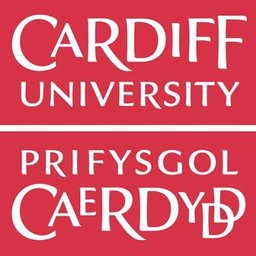Main Function
To contribute to research within the field of Heterogeneous Catalysis carrying out supporting work that helps lead to the publishing of high-quality research. To pursue excellence in research and to inspire others to do the same
Main Duties and Responsibilities
Research
To resolve issues and support colleagues in devising procedures required to ensure accurate and timely reporting;
Other
To contribute to research within the field of Heterogeneous Catalysis carrying out supporting work that helps lead to the publishing of high-quality research. To pursue excellence in research and to inspire others to do the same
Main Duties and Responsibilities
Research
- To undertake research within Heterogeneous Catalysis using plasmonic photocatalysis by planning, preparing, setting up, conducting and recording the outcome of experiments;
- Actively participate within the research group, communicating and presenting research at meetings, through publications and other recognised avenues as appropriate, ensuring information is communicated to internal and external partners;
- To contribute and support research publications and presentations as required;
- To contribute and support research funding bids as required;
- To analyse and communicate complex ideas, concepts and data using appropriate methods and packages;
To resolve issues and support colleagues in devising procedures required to ensure accurate and timely reporting;
- To generate research output and contribute to the development of independent and original ideas as appropriate;
- To provide support in research activities for undergraduate courses and research programmes and provide guidance to other members of staff within the research team;
- To maintain and update area of specialist knowledge, researching and critically appraising relevant literature within the area.
Other
- To participate in School administration and activities to promote the School and its work to the wider University and the outside world;
- To undergo personal and professional development that is appropriate to and which will enhance performance;
- To ensure that an understanding of the importance of confidentiality is applied when undertaking all duties;
- To abide by the University policies on Health and Safety and Equality, Diversity & Inclusion;
- Any other duties not included above, but consistent with the role
Person Specification
IMPORTANT NOTE TO CANDIDATES: It is the University’s policy to use the person specification as a key tool for short-listing and we only invite candidates to interview who clearly evidence that they meet (or partially meet) each of the essential criteria. During the application process you will be asked to attach a supporting statement. This statement must outline how you meet the criteria below and we recommended formatting this by using each criterion as a sub-heading and providing your relevant experience/evidence below each sub-heading. It is crucial that you save your supporting statement with the vacancy number (e.g. 1234BR) in the filename as failure to do so may result in it being omitted from your application.
Essential Criteria
Qualifications and Education
1. A degree in Chemistry, or equivalent experience.
Knowledge, Skills and Experience
2. Knowledge of research methods and techniques within Heterogeneous Catalysis on the use of plasmonic photocatalysis for the reduction of nitrate to ammonia.
3. Proven ability to analyse complex information and summarise appropriately.
4. Knowledge and understanding of competitive research funding to be able to develop applications to funding bodies.
Communication and Team Working
5. Proven communication skills, including presentation to various audiences.
6. Excellent organisational and team-working skills.
Other
7. Proven ability to demonstrate creativity, innovation and teamworking within work.
Desirable Criteria
1. Postgraduate degree at PhD level (or nearing completion/ submission) in a Heterogeneous Catalysis
2. Evidence of collaborations with international partners.
3. Proven ability to work without close supervision.
4. Proven ability to adapt to the changing requirements of the Higher Education community.
5. Fluency in Welsh, written and oral.
Essential Criteria
Qualifications and Education
1. A degree in Chemistry, or equivalent experience.
Knowledge, Skills and Experience
2. Knowledge of research methods and techniques within Heterogeneous Catalysis on the use of plasmonic photocatalysis for the reduction of nitrate to ammonia.
3. Proven ability to analyse complex information and summarise appropriately.
4. Knowledge and understanding of competitive research funding to be able to develop applications to funding bodies.
Communication and Team Working
5. Proven communication skills, including presentation to various audiences.
6. Excellent organisational and team-working skills.
Other
7. Proven ability to demonstrate creativity, innovation and teamworking within work.
Desirable Criteria
1. Postgraduate degree at PhD level (or nearing completion/ submission) in a Heterogeneous Catalysis
2. Evidence of collaborations with international partners.
3. Proven ability to work without close supervision.
4. Proven ability to adapt to the changing requirements of the Higher Education community.
5. Fluency in Welsh, written and oral.
Additional Information
Project Description
The main objective of this project is to design and develop multifunctional catalysts the design of new plasmonic photocatalysts and/or electrocatalysis.
The main objective of this project is to design and develop multifunctional catalysts the design of new plasmonic photocatalysts and/or electrocatalysis.
Salary Range Min.
33,482
Salary Range Max.
36,130
Job Category
Academic - Research
Grade
Grade 5
Report job

